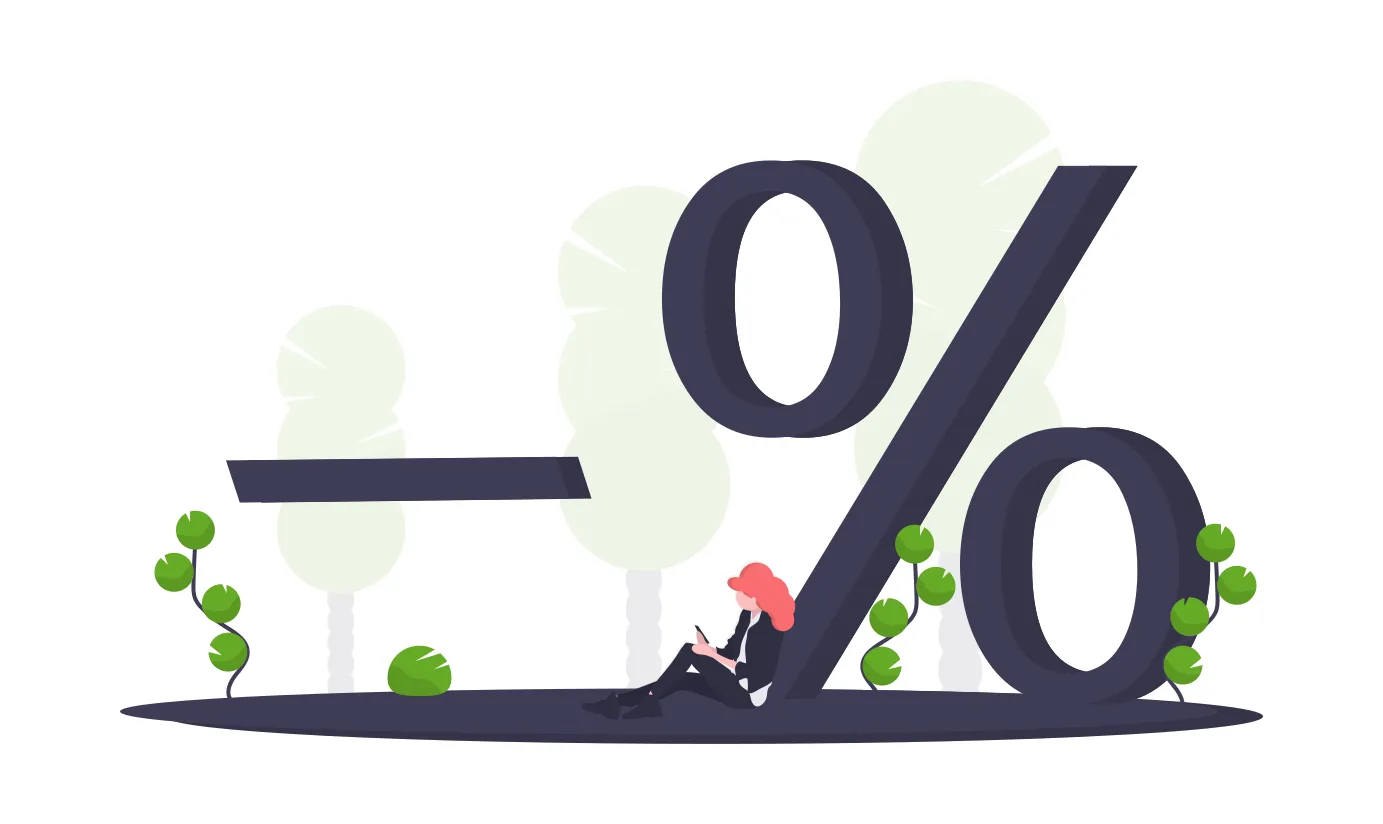Installment Loan Utilization Guide
Installment loans, when utilized wisely, can be a valuable financial tool. By comprehending their intricacies, weighing the pros and cons, meeting eligibility criteria, and practicing responsible borrowing habits, you can borrow with confidence. Remember, prudent borrowing empowers you to achieve financial goals while maintaining fiscal control.
We’ve all faced unexpected financial challenges, from urgent car repairs to medical emergencies or needing a debt consolidation loan to manage monthly expenses. In these times of unexpected financial strain, installment loans can be a viable solution.
This comprehensive guide will clarify installment loans, explaining their mechanics, the pros and cons, and outlining the credit prerequisites you most likely have to meet to get approved for an installment loan. By the end of this article, you’ll be better equipped with the necessary knowledge to make informed financial decisions.
How Do Installment Loans Differ?
Installment loans differ primarily in their repayment structure. Borrowers pay back the loan amount plus interest through fixed monthly payments over a set period, typically ranging from a few months to several years. This system offers clear terms, predictable payments, and versatility in loan amounts and purposes, making it distinct from other loan types and payday loans.
How Do Installment Loans Differ?
Installment loans differ primarily in their repayment structure. Borrowers pay back the loan amount plus interest through fixed monthly payments over a set period, typically ranging from a few months to several years. This system offers clear terms, predictable payments, and versatility in loan amounts and purposes, making it distinct from other loan types and payday loans.

Let’s review a real-life scenario: you need $7,000 for a crucial kitchen renovation. After considering credit cards, seller financing, and other options, you opt for an installment loan; here’s what happens:
- You Get Money: A lump sum of money gets deposited into your account, and now you have to pay the loan back with monthly payments.
- Interest: There’s a cost associated with borrowing money. The lender charges you an interest rate, a percentage of the loan amount you pay for the privilege of borrowing. This interest gets added to the principal amount (the $7,000 you borrowed) to determine your total loan amount.
- Repayment Terms (Fixed vs. Variable Rates): Your agreement with the lender dictates the repayment term with the lender. This is the timeframe you have to pay back the entire loan amount, including interest. Two primary repayment terms are:
- Fixed Rate: The prevalent installment loan type where the interest rate remains constant throughout the term.
- Variable Rate: In this scenario, the interest rate can fluctuate, impacting your monthly payment based on market conditions. While variable rates may offer lower initial interest rates, they pose the risk of future payment fluctuations due to changing market conditions and interest rates.
Factors Influencing Interest Rates
Several factors influence the interest rate offered on an installment loan:
- Credit Score: A strong credit score (typically above 660) signifies creditworthiness, enhancing the likelihood of securing lower interest rates.
- Loan Amount: The borrowed sum can affect the interest rate, larger amounts may be offered at slightly lower rates.
- Loan Term: Shorter terms usually entail lower interest rates compared to longer durations, as they reduce the lender’s risk.
- Loan Type: The specific installment loan type sought can impact the interest rate. For instance, personal loans generally carry higher rates than secured home equity loans.
To improve your chances of securing favorable terms, it’s essential to maintain a good credit score. Here are some tips:
- Make timely payments on all your existing debts and bills
- Keep your credit utilization ratio (the amount of credit you’re using compared to your total credit limit) below 30%
- Monitor your credit reports regularly and dispute any errors or inaccuracies
- Limit new credit applications, as each hard inquiry can temporarily impact your score
By actively managing and improving your credit score, you can position yourself for better interest rates and loan terms when seeking an installment loan.
Loan Amount Considerations
The loan amount available through an installment loan hinges on various factors like income, credit score, debt-to-income ratio, and lender policies. Personal installment loan amounts can span from a few hundred to tens of thousands of dollars.
Utilizing Installment Loans: Unrestricted Usage
Installment loans serve diverse financial needs:
- Debt Consolidation: A strategic tool for merging high-interest debts into a single manageable payment, simplifying debt management and potentially reducing interest costs.
- Home Improvement: Facilitating financing for home upgrades or repairs, spreading expenses over time.
- Major Purchases: Enabling significant purchases without depleting savings, offering a structured repayment plan.
- Unexpected Expenses: Acting as a safety net for unforeseen costs like repairs, medical bills, or emergencies, aiding in budget management.
- Medical Bills: Assisting in managing substantial medical expenses by spreading costs over a manageable period.
- No Restrictions: Installment loans offered through the GetMoney.com network do not have a usage restriction.
Advantages of Installment Loans Over Other Options
Installment loans present several advantages:
- Predictable Payments: Offering fixed monthly payments for streamlined budgeting and financial planning.
- Improved Credit Score: Timely payments enhance credit scores, paving the way for better loan terms in the future.
- Large Purchase Power: Allowing borrowing of substantial sums compared to credit cards, facilitating major purchases.
- Debt Consolidation: Streamlining debt repayment and potentially saving on interest costs.
Potential Drawbacks and Risks
While installment loans offer several benefits, it’s essential to be aware of the potential drawbacks and risks:
- Accumulating More Debt: If not managed responsibly, installment loans can lead to accumulating more debt, making it harder to achieve financial stability.
- Penalties for Late or Missed Payments: Lenders may impose late fees or other penalties for missed or late payments, increasing the overall cost of the loan.
- Impact on Credit Score: Defaulting on an installment loan can significantly damage your credit score, making it more difficult to secure future loans or credit.
- Debt Collection Efforts: In the event of default, lenders may pursue debt collection efforts, which can be stressful and potentially lead to legal action.
Tips for Responsible Borrowing
To mitigate the risks and ensure a positive experience with installment loans, it’s crucial to practice responsible borrowing habits:
- Create a Detailed Budget: Before taking out a loan, carefully assess your income, expenses, and existing debts to ensure you can comfortably afford the monthly payments.
- Consider the Total Cost: Evaluate the total cost of the loan, including interest and fees, to understand the true financial commitment.
- Explore Alternatives: Consider alternatives like saving or negotiating with creditors before taking out a loan, as these options may be more cost-effective in the long run.
- Set Up Automatic Payments: To avoid missed or late payments, set up automatic payments from your bank account or paycheck to ensure timely repayment.
- Borrow Only What You Need: Resist the temptation to borrow more than necessary, as this can increase your overall debt burden.
- Monitor Your Credit: Regularly check your credit reports and scores to ensure timely payments are accurately reflected and to identify any potential issues.
Remember, responsible borrowing is paramount. Here are additional tips to bear in mind:
- Compare Rates: Get quotes from various lenders to secure competitive terms.
- Borrow Responsibly: Only borrow within your means, factoring in monthly budget and essential expenses.
- Explore Alternatives: Consider other options like savings or introductory APR credit cards to determine the best fit.
Recommended Resources for Consumer Loans
If you need help with your installment loan, we highly recommend visiting trusted resources such as the Pew Charitable Trusts at https://www.pewtrusts.org/ and the Federal Trade Commission’s Consumer Information page at https://consumer.ftc.gov/. These organizations offer valuable insights, resources, and guidance to help you understand your rights as a borrower, and make informed financial decisions.















